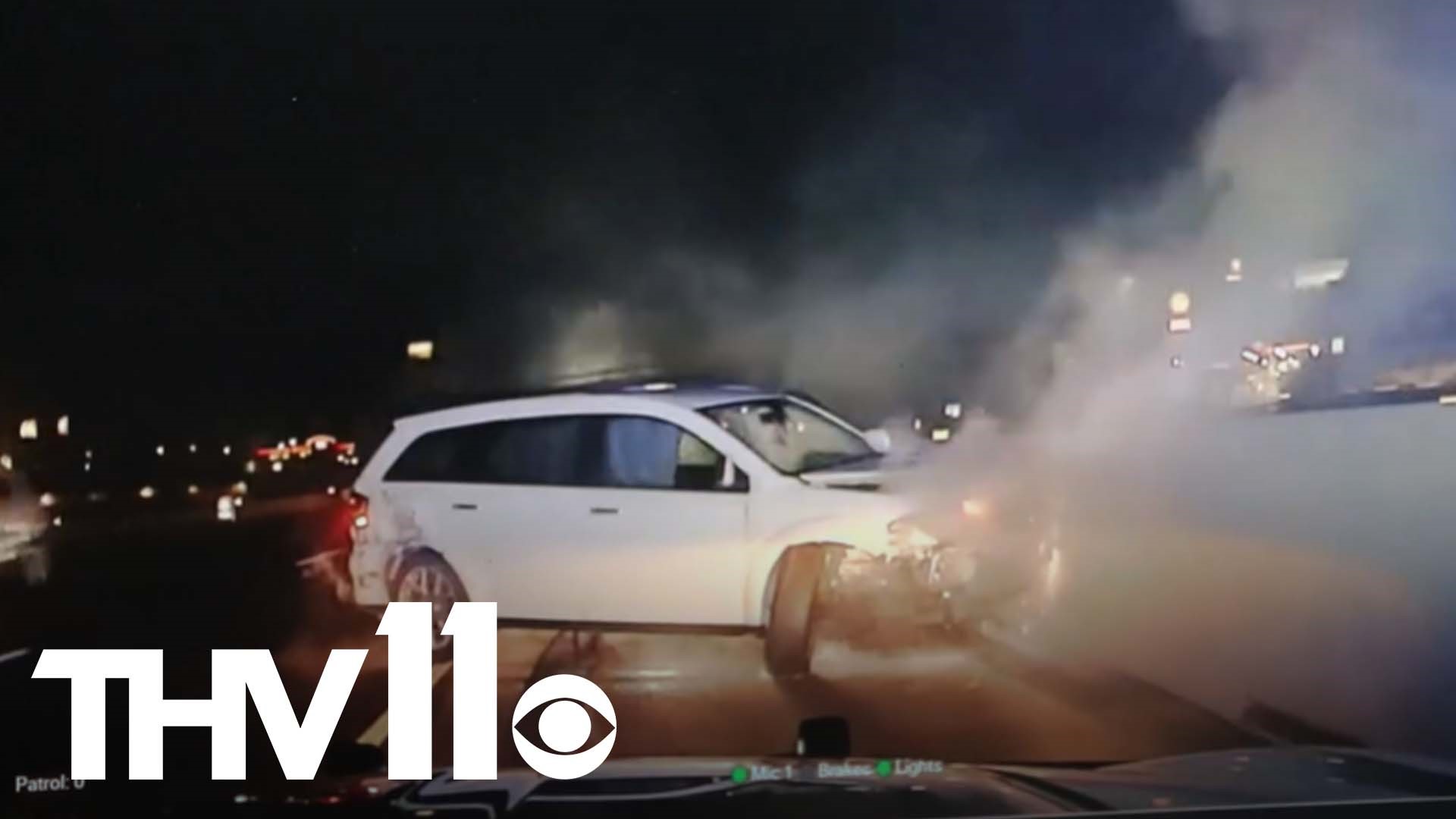LITTLE ROCK, Ark. — There's one thing Mike Hagar, Director of the Arkansas State Police (ASP), can't stand.
"When someone flees in a vehicle, it's a three or four thousand pound bullet," Hagar said. "It's sickening, I've seen [someone fleeing] as a police officer, as a trooper in front of me, and it's the most sickening feeling in the world."
Fleeing. We've all seen the videos of ASP chasing someone down an Arkansas Highway. Those chases can be fast and dangerous.
"Hope is not a strategy, luck is not a plan, we can't just follow someone and engage in a high speed parade, and hope that person is not going to hit an innocent bystander, innocent civilians on the road," Hagar said. "I mean, that's all our families out there."
You'll sometimes see officers use a PIT maneuver to stop a chase. Hagar said they'd prefer to not have to do that at all and mentioned he'd prefer not having a chase in the first place as it can be dangerous for the public, the suspect, and the trooper.
Data shows that state police averaged nearly 500 chases per year from 2018 to 2021, with PIT maneuvers used 108 times on average. That is about two times per week.
In that time period, three people died and 204 people were injured, with 43 troopers and 38 civilians hurt.
"It's dangerous for the suspect, it's dangerous for the trooper," he said.
A new amendment to Arkansas's code could help with that. Act 734 allows those running from law enforcement to be charged with a Class D Felony if they exceed the speed limit while on that chase.
That felony carries a penalty of up to six years in prison. Hagar said the hope is that it keeps people from running in the first place. Not only is it dangerous, he said it could also add additional charges.
"Just to have the additional felony charge added to that, [fleeing] it's completely unnecessary," he said.
There's no guarantee that the change is going to make someone stop instead of fleeing, but Hagar said for the sake of those around you – just stop.
"I hope people realize that it's just absolutely not worth it," he said. "A felony charge is something that no one wants on their record, and even if what they are doing may result in a felony, you don't want that second charge."

